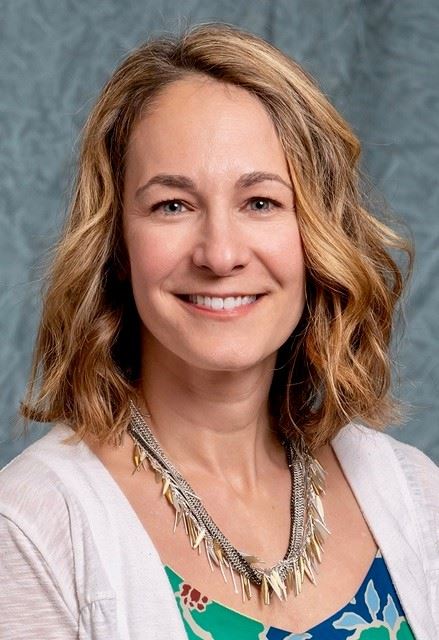During the pandemic, many of us have turned to our mentors for advice and support or sought out new mentors who could guide us through unexpected circumstances – such as a switch to remote teaching or a change in employment status. Other times mentors and mentees swapped roles, with the mentee sharing skills their mentor suddenly needs – whether creating video lectures for classes or practicing mindfulness medication for self care.
As I thought about this post over the past month, the theme of mentoring has been inescapable. First, as I continue to highlight members of the STP Executive Committee with the goal of increasing awareness of the many arenas in which STP operates, I learned that Keli Braitman, STP’s Vice President for Grants and Awards, credits a mentor for her involvement in STP. (You’ll read more about Keli and her VP role later in this post!) Then, on March 13, I was invited to attend a Zoom social hour of STP’s Early Career Psychology Committee and mentoring network. It was wonderful to hear about the relationships formed between mentors and mentees paired through STP’s Professional Development Mentoring Network, directed by Diane Finely. I also worked this month on a soon-to-be-launched podcast project with colleagues Yinka Akinsulure-Smith, Eric Landrum, and Asani Seawell. Our podcast, Beyond Teaching, is part of the STP-sponsored PsychSessions series, and will focus on non-classroom issues that psychology instructors face. It’s perhaps not surprising that the first topic we tackled was finding a mentor!
(Want to join STP’s Mentoring Network as a mentor or mentee next academic year? Apply through May 31 here. Director Diane Finley personally makes matches based on shared interests and experiences, and she encourages folks to apply. Diane hopes to increase diversity in the program, particularly among mentors! She asks you to be sure to check that your STP membership is up to date before applying.)
Finally, our featured VP, Keli Braitman, who holds all the answers for how you can get STP money! We are eager to recognize and support the amazing work of our members, and Keli works both tirelessly and enthusiastically to oversee the many committees that carefully review applications. I am so often amazed at the breadth and value of the work that our members do, and I’m grateful to Keli and the awards chairs and committees for highlighting these accomplishments.
 What would you like STP members to know about your position? VP for Grants and Awards is arguably one of the best roles in STP – who doesn’t love giving grants and awards? Kidding aside, supporting the work of our members through awards recognizing excellence in teaching, mentorship of teachers, civic engagement, and promotion of work to expand diversity, equity and inclusion; through travel grants for early career psychologists, high school teachers, and for international travel; and grants for scholarship of teaching and learning, instructional resources, and partnerships across organizations, is incredibly gratifying.
What would you like STP members to know about your position? VP for Grants and Awards is arguably one of the best roles in STP – who doesn’t love giving grants and awards? Kidding aside, supporting the work of our members through awards recognizing excellence in teaching, mentorship of teachers, civic engagement, and promotion of work to expand diversity, equity and inclusion; through travel grants for early career psychologists, high school teachers, and for international travel; and grants for scholarship of teaching and learning, instructional resources, and partnerships across organizations, is incredibly gratifying.
The person in this role collaborates with chairs of 11 different grant and award committees, which is an enriching way to get to know others in STP. Another benefit is in learning more about the important work that our members are doing to support the mission of the Society. It is both humbling and gratifying to see the breadth and depth of these endeavors. In addition to overseeing the development, maintenance, and functioning of STP’s grants and awards programs, the VP for Grants and Awards considers new areas for recognition and support. Most recently I worked with the VP for Diversity and International Relations and the chair of the Diversity Committee to develop our latest award to recognize instructors who promote and prioritize the values of diversity, equity, and inclusion in their teaching and mentoring. Lastly, serving with other members of the Executive Committee is an excellent way to learn more about the various areas of STP, including programming, resources, membership, and international relations.
What do you most value about STP? I returned to teaching at the age of 38 after working in non-profit research for several years. Having been away from the classroom, one of my mentors suggested I become involved in STP as a way of connecting with others with a passion for teaching. She directed me to the ‘Get Involved’ page and my first touchpoint was serving on the Partnership Small Grants committee. I began taking advantage of STP’s varied resources, networking, and professional development opportunities. The more I leaned in, the more connected I felt. I teach in a small 3-person department, and so developing networks with teachers outside of my institution became so rewarding, and has led to opportunities that have enhanced my teaching, scholarship, and service. In short, my professional (and social) life would not be the same without STP. What I most want others to know is that there are a variety of grant and award programs to support and recognize our members’ work. Please take a look!
